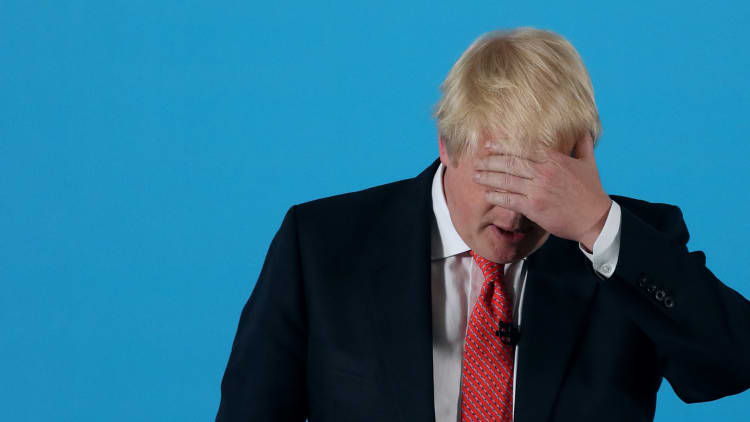U.K. Prime Minister Boris Johnson will test out his new parliamentary majority on Friday by putting his Brexit bill to a new vote in the House of Commons.
Lawmakers agreed to the bill in principle in October but rejected a short timeframe to ratify it, which ultimately led to last week's general election. The public vote gave Johnson a huge 80-seat majority in the lower chamber of Parliament and effectively broke the deadlock that has plagued British politics in recent years.
The "second reading" of the bill on Friday will be followed by a vote at around 3:00 p.m. London time and it would then require further debate in both chambers early next year. If passed into law, it would mean that the U.K. would leave the EU on January 31, three-and-a-half years after the 2016 referendum.
Changes to the bill from October are seen as controversial by many. The new bill would outlaw any extension to the U.K.'s transition period which is set to run until December 31, 2020. This would tighten the gap that Britain has to agree a trade deal with the EU — increasing the chances of a no-deal Brexit.

Other changes would see more U.K. courts being allowed to reconsider laws made by the European Court of Justice. A clause on workers' rights has also been removed, although the government has stated that this will be dealt with in a separate bill.
In the Queen's Speech on Thursday, Queen Elizabeth II outlined Johnson's plans for government saying that the priority was "to deliver the United Kingdom's departure from the European Union on 31 January."
"My ministers will bring forward legislation to ensure the United Kingdom's exit on that date and to make the most of the opportunities that this brings for all the people of the United Kingdom ... Thereafter, my ministers will seek a future relationship with the European Union based on a free trade agreement that benefits the whole of the United Kingdom," she said.
Sterling has trended lower this week with the threat of no deal being brought back onto the table. The pound was trading at 1.3019 against the greenback on Friday morning, after trading near $1.35 as the election results first came in last week. The currency is up more than 2% since the start of the year.
Johnson's predecessor Theresa May was unsuccessful on three occasions with her own Brexit bill before officially stepping down on June 7.



